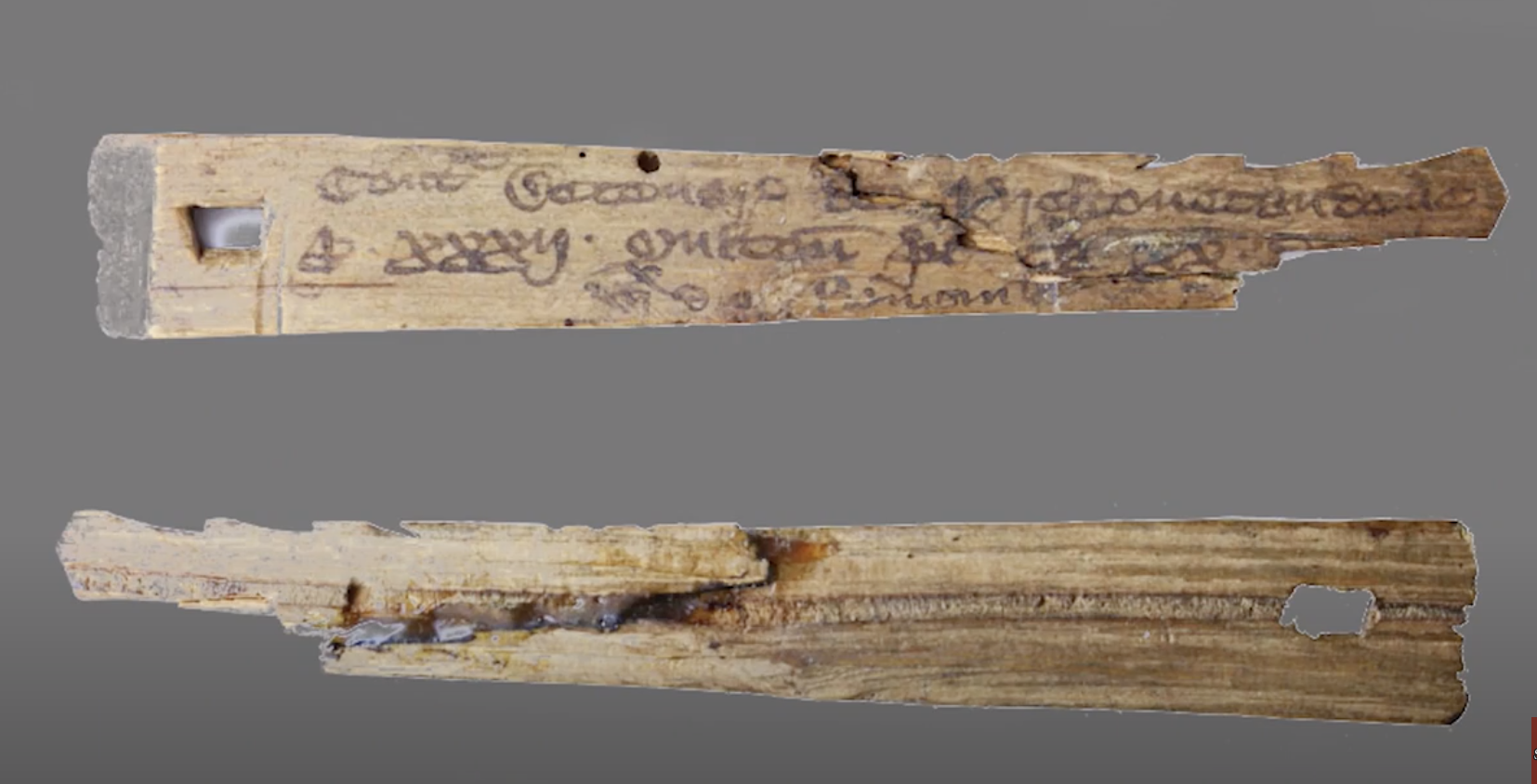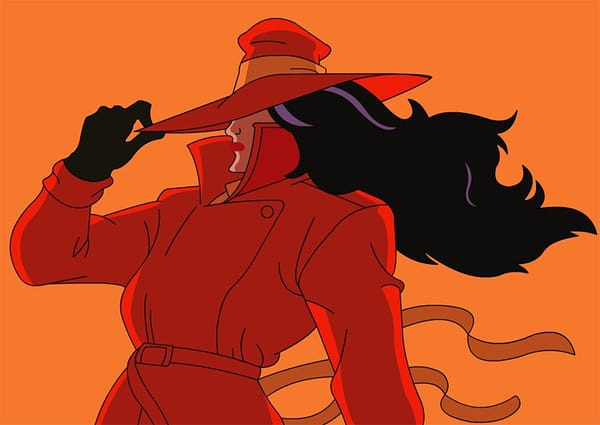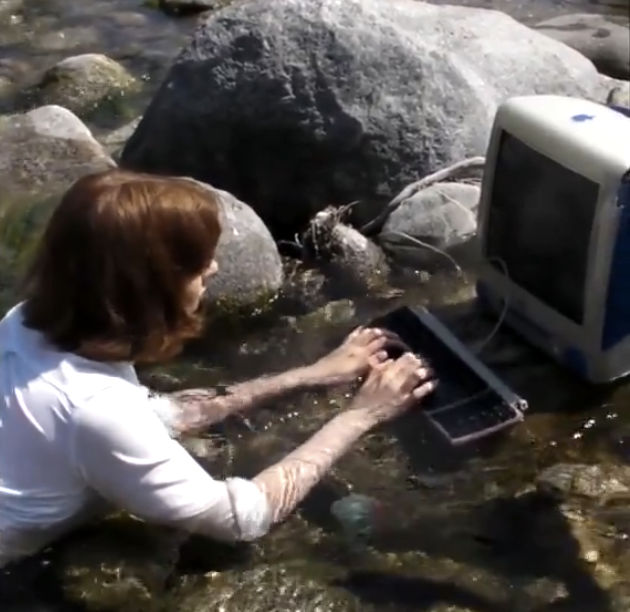Stick Memory
Why Going in Circles Might Be the Only Way

Someday when I die, after I get rowed down the River Styx – where even in death I’ll probably get boat-sick – I’ll pause on the shore for one last look at the human world while I take deep breaths into a paper bag. But after that which, of course, will make me lose my place in line among the other dead and get sent to the end – after that, I’ll find myself in a beige waiting room where I’ll fill out some documents about how I spent my life on earth. And as usual, every time I try to hand the clipboard to the spectacled receptionist, she’ll send me back to my seat – twice, thrice – to attend to a few more sections I missed. I just got to the Afterlife and already I’m screwing up. Like any other transition, I can’t seem to move forward without circling back.
But finally, my name will be called and I’ll be led through a labyrinth of hallways to a cramped office where I’ll meet with the Afterlife Agent reviewing my case. He’s gonna have some additional questions like, exactly how many pieces of gum did you swallow? There might be some hasty scribbling about the number of times I locked myself out, a bit of head shaking over the hours I snoozed. But what he’ll really want to know is about something I devoted countless days to – months, maybe even years. He’ll want to know about all that time I spent throwing sticks.
Let me set the record straight, while I’m still alive. Most of that stick-throwing can be blamed on my dog, Nala, a stick fiend. If I had as much passion for anything as she has for sticks, I’d speak ten languages. I’d land triple axles. I’d be retired. Around sticks, Nala becomes a different dog. She won’t admit it, but she’s got a problem. Strangers often call her a “stick junky”– and while I’ve tried to wean her off sticks and onto tennis balls, she hasn’t managed to kick her habit yet.

This used to annoy me. Throwing sticks is messy, a splinter hazard, repetitive. Throw, catch, throw, catch, throw, catch. But as much as I dislike stick-throwing, I think part of this has to do with the fact that I do the same thing as Nala with my own internal sticks – my grudges, impulses, memories that I revisit over and over again.
Here’s how I go about it: I try to throw these metaphorical sticks far away from me. I say I’m letting them go. Practicing detachment. Getting them out of my head. But even when I throw these sticks into the cobwebbed corners and stinky alleys of my mind, my Brain – that overeager retriever – sniffs them out and digs them up and comes bounding back to me. Don’t worry, Brain says, holding the memory in his teeth, I dug up that time you thought you were on mute but you actually weren’t! Great.
So then I try throwing the sticks even farther, so I can really be done with them and move forward. But of course, the stick always comes back. The game goes on.
It’s tempting to see this return as failure. An inability to detach or tame the mind. But as I’ve been going through this current transition, which involves a lot of taking walks and throwing sticks, I’ve started to realize that true detachment isn’t a clean break or dramatic exit but more like the slow, circular processes of nature. Letting go in rounds and rounds and rounds of mental fetch.
Take trees, for example. They’re constantly shedding parts of themselves – branches snap off, limbs fall away. But those lifeless sticks don’t disappear. They lay on the forest floor, gazing up at the tree like, hey I used to be part of your life! But the tree doesn’t curse them. Nature understands that letting go is gradual and slow decomposition has value. Fallen sticks become homes for insects and part of the forest floor. Over time they release nutrients that re-enter the soil and contribute to the growth of the very tree they fell from.
Humans have also found the value in sticks. Throughout history, sticks have been repurposed as tools, weapons, and instruments. Even before the birth of civilization, humans made cuttings on sticks to record information and mark time. They were used to tell stories, carved with symbols and etchings, played a role in rituals and were passed down from one generation to the next. Up until 1837 in England, tally sticks, which are just sticks with a fancy name, served as proof you’d paid your taxes. These literal sticks, along with the metaphorical ones we carry, aren’t just debris from the past. They’re vessels of information full of lessons and meaning.

Of course, the lessons aren’t always pleasant to learn, especially when a stick holds the sting of a hurtful comment or the shadow of a relationship. Engaging with it at all can feel like submitting to some sort of Sisyphean punishment. But as I’ve spent hours tossing sticks in the woods, I’ve realized that there are two ways to approach them. You can dread them, or you can be like Nala and view each throw as a discovery, a fresh challenge whose arc always leads somewhere new. I’m not saying I’ve managed to bring her joy to my ruminating thoughts, but I’ve started to adopt her curiosity. Rather than pushing away an old memory, I look for the lesson in each repetition.
This week I was in a new place throwing the same old sticks. If Nala could talk she might say there’s actually an artisanal selection process behind each walk’s chosen stick, but how she picks the stick is as much a mystery as why I hang onto certain memories. We played our usual game with me tossing the stick down the path, through the woods and even once sending it off a small rocky cliff. I didn’t want to go down there and get it, but when I tried to walk up the path or offer a different stick, Nala stood at the cliff’s edge, waiting for me to retrieve it, like I was the dog now.

So I scrambled down the rocks, tearing a hole in my pants in the process, but it was worth it. That stick was special. Nala carried it for hours, all the way down the trail, back to a swaying wooden bridge, strung over the teal blue Soča River. I thought she might carry the stick to the other side, but just before we crossed over, she dropped it. She was ready to let go, and together, we moved on.




